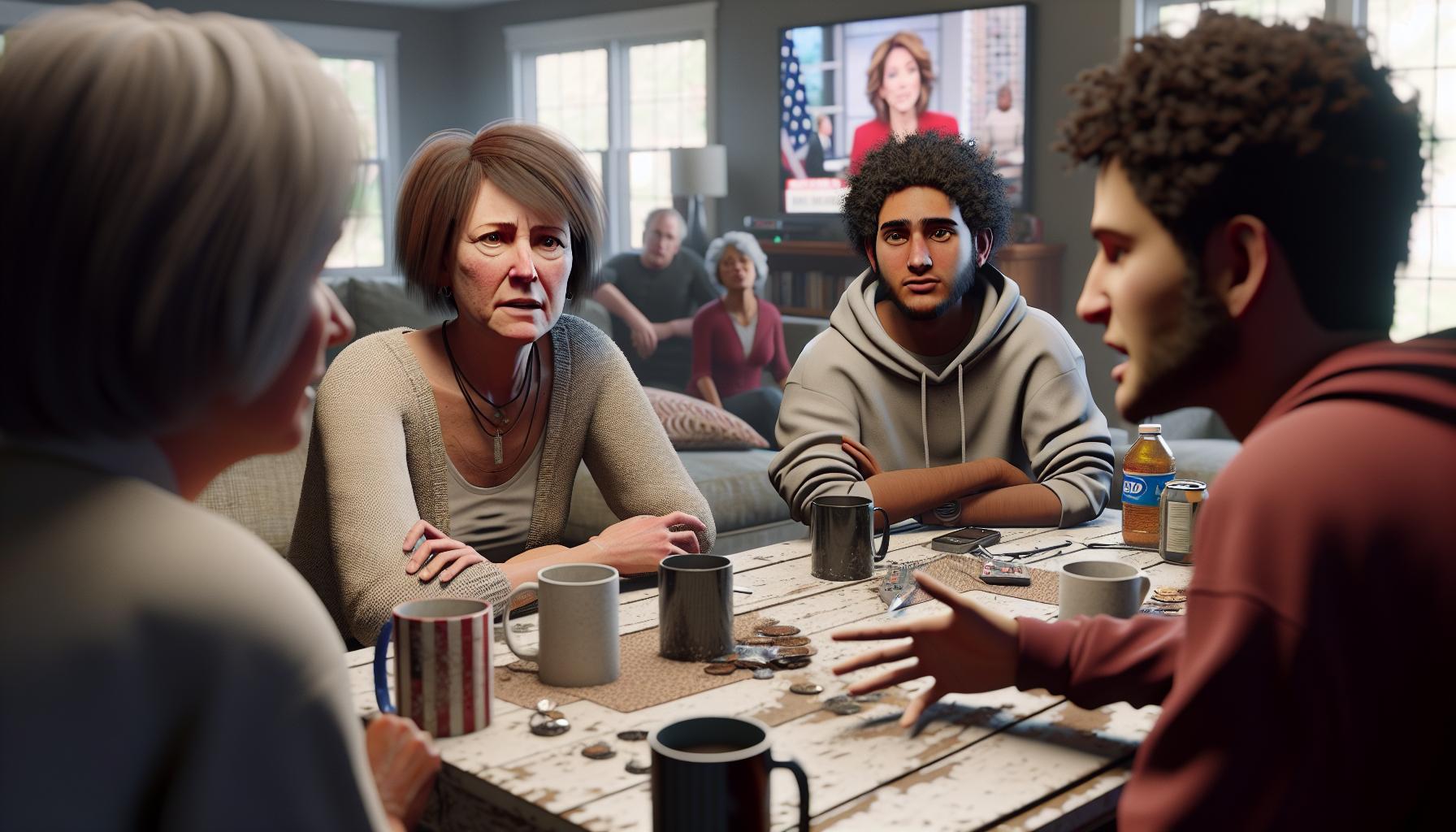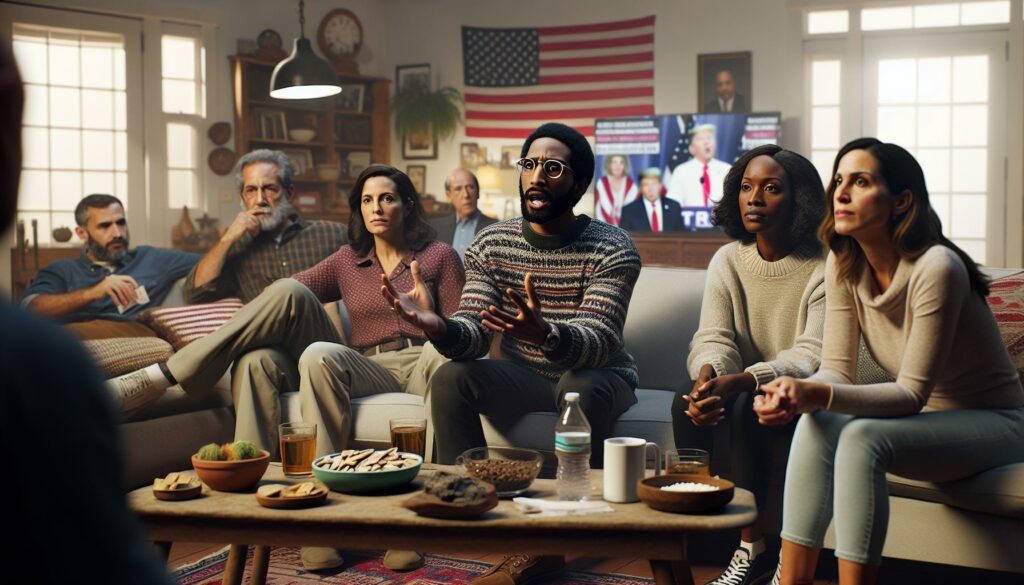Imagine sitting on your couch for hours, glued to the TV, as partisan talk shows blast opinions louder than your neighbor’s lawnmower on a Saturday morning. While it might feel like you’re getting the inside scoop on the latest political drama, the reality can be a bit more complicated. This binge-listening might just turn you into a political zombie, lurching through life with a one-sided view and a knack for shouting at the screen.
But what’s the real impact of spending countless hours in this echo chamber? Are listeners becoming more informed citizens or just more skilled at yelling their opinions into the void? Dive into the whirlwind world of partisan talk shows and discover how they shape beliefs, influence emotions, and might even turn you into the life of the party—or the person everyone avoids at gatherings.
What is the Likely Result of Spending Hours Listening to Partisan Talk Shows
Partisan talk shows focus on promoting specific political viewpoints and often foster a polarized environment. These programs shape public perceptions of political events and ideologies.
Definition and Characteristics
Partisan talk shows primarily aim to advocate for one-sided political agendas. They frequently feature hosts who possess strong affiliations to political parties and ideologies. These shows often employ emotionally charged language to engage listeners. Frequent use of definitive statements enhances the sense of certainty. Listeners regularly encounter selectively chosen facts and opinions that reinforce specific narratives.
Popularity and Reach
Partisan talk shows boast immense popularity, with millions tuning in daily. The format resonates deeply with audiences craving affirmation of their personal beliefs. Significant platforms host these programs, making them easily accessible for diverse populations. Notably, studies show that about 40% of Americans consume news from partisan sources. Moreover, the influence of these shows extends beyond individual listeners and impacts collective political discourse.
Psychological Impact

Excessive consumption of partisan talk shows can create significant psychological effects. Individuals often experience shifts in their attitudes and beliefs as a result of prolonged exposure to these programs.
Cognitive Dissonance
Cognitive dissonance arises when one encounters conflicting beliefs or information. Engaging with partisan talk shows causes discomfort when viewers face ideas that clash with their own views. That tension may drive individuals to either reject opposing viewpoints or double down on their existing beliefs. Research suggests that repeated exposure to contradictory information fosters a cycle of avoidance. Instead of embracing diverse perspectives, many people reinforce their original stance, creating a barrier to meaningful political dialogue.
Confirmation Bias
Confirmation bias plays a pivotal role in shaping how people process information. This psychological tendency leads individuals to favor information that aligns with their existing beliefs. Regular listeners of partisan talk shows often seek out content that supports their views, disregarding evidence to the contrary. When individuals prioritize information that confirms their biases, they become trapped in a cycle of misinformation. Such behavior not only polarizes opinions but also diminishes the quality of political discourse, resulting in reduced openness to differing perspectives.
Social Implications

Excessive exposure to partisan talk shows results in significant social consequences. These implications spread beyond individual beliefs, affecting societal interactions and discourse.
Polarization of Opinions
Polarization emerges as viewers consistently engage with biased content. This environment fosters extreme ideological divides, leaving little room for centrist or moderate viewpoints. Studies show that about 40% of Americans rely on partisan sources for news, intensifying these divisions. Confirmation bias further reinforces selective exposure, leading individuals to reject opposing arguments. The result is a fragmented political landscape where constructive dialogue becomes increasingly rare. This deep-seated division extends beyond media consumption, influencing public perception and policy support.
Impact on Relationships
Relationships often suffer due to differing political beliefs shaped by partisan programming. Friends and families may find it challenging to maintain solidarity when political discussions arise. Emotional confrontations can become common, as opposing views trigger defensiveness. Research indicates that nearly 50% of Americans experience tension with loved ones over political differences. As debates center around emotionally charged narratives, individuals may withdraw from conversations altogether. Consequently, meaningful connections weaken, and trust diminishes, leading to a disconnection from those who uphold contrasting beliefs. This fragmentation can diminish communal cohesion and cultivate an atmosphere of distrust.
Effects on Decision Making

Partisan talk shows significantly shape listeners’ political views and personal choices. Regular engagement with these programs creates a feedback loop that reinforces preexisting beliefs without consideration of alternative perspectives.
Influence on Political Views
Political views often become more extreme after exposure to partisan content. Research indicates about 40% of Americans rely on biased sources for news. Emotional language used by hosts promotes a sense of belonging to a specific ideology, creating a polarized environment. Viewers frequently adopt the opinions presented, leading to an increased divide in political discourse. This phenomenon reduces the willingness to engage with differing ideas, further entrenching individuals in their political factions. Consequently, decision-making becomes less about informed debate and more about unwavering loyalty to ideological extremes.
Effect on Personal Choices
Personal choices can shift as a result of continuous exposure to partisan media. Social interactions often reflect the views cultivated by these shows, affecting relationships within families and friend groups. Individuals may refuse to engage with people holding opposing beliefs, which restricts healthy conversations. Nearly 50% of Americans note relationship strain due to differing political opinions, showcasing the impact of this behavior on personal dynamics. Decisions about social activities, purchases, and community involvement may align with views promoted by partisan talk shows, limiting exposure to diverse perspectives. Ultimately, this environment creates a sphere where consensus diminishes, and polarization thrives.
Critical Engagement With Opposing Views
Spending hours immersed in partisan talk shows can profoundly shape an individual’s worldview. This behavior often leads to a narrow understanding of political issues and fosters an environment where meaningful dialogue becomes increasingly rare. As viewers become entrenched in their beliefs they may find themselves isolated from differing opinions and perspectives.
The emotional language and selective presentation of facts can create a feedback loop that reinforces existing ideologies while discouraging critical engagement with opposing views. This cycle not only impacts personal relationships but also contributes to a broader culture of polarization. Ultimately, the consequences of excessive consumption of partisan content extend beyond individual listeners to influence societal discourse and community dynamics.



